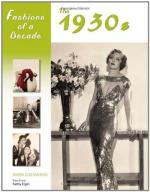|
This section contains 250 words (approx. 1 page at 300 words per page) |

|
Tensions between businessmen and educators in Chicago exemplified national controversies. The local school board was dominated by wealthy businessmen whose priorities during the Depression were lower taxes and repayment of a large school debt, incurred to finance a construction boom in the 1920s. Fred W. Sargent, president of the Chicago and Northwestern Railroad and chairman of the business-sponsored Citizens' Committee on Public Expenditures, demanded a 33 percent cut in educational expenditures. Wealthy Chicagoans organized a tax strike that succeeded in halving city tax collections, forcing reductions in school expenditures. Bankers and businessmen also succeeded in getting the school board to suspend wage payments to teachers, withholding $20 million, or $1,400 per teacher, by 1932. From 1930 to 1934 only nine salary checks were disbursed on time; sometimes wage payments were as late as nine months. The school boards increased the teaching load to six classes per day, with each teacher instructing...
|
This section contains 250 words (approx. 1 page at 300 words per page) |

|




